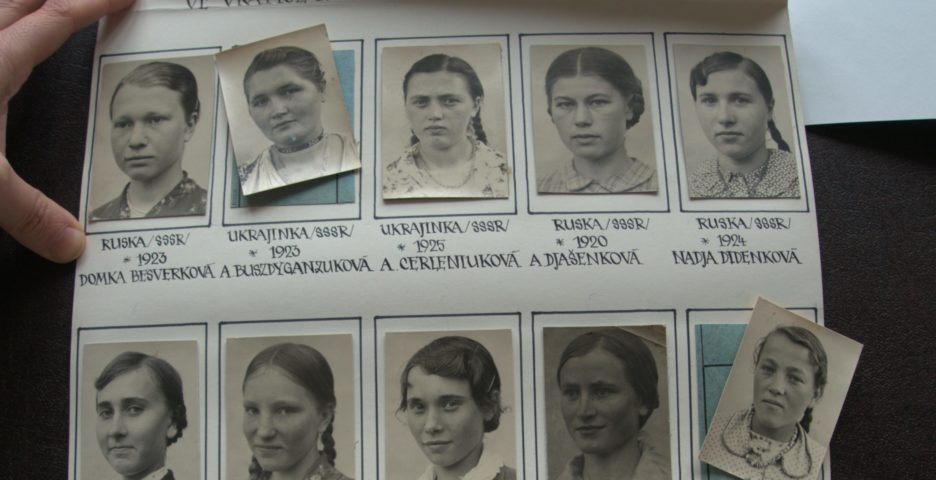Karina Hoření shares reflections from her visit to the archive in Most, a city in northern Czechia marked by a complex history of displacement. Following the post-war expulsion of its German-speaking population, the historic town was demolished in the 1970s to make way for coal mining. Her trip, grounded in the framework of critical archival studies, focused on uncovering materials related to the German history of North Bohemian industry.
During her research, Karina examined identification cards of women from the Soviet Union who had been forced labourers in a carpet factory in Maffersdorf/Vratislavice nad Nisou. As she handled the documents, two photographs detached from their cards, severing the connection between faces and names. This moment prompted a reflection on the nature of archives—not as neutral repositories of factual knowledge, but as spaces shaped by specific individuals, events, and material conditions.
Karina also describes the people, places, and atmosphere of the institution itself, considering how these elements influence the production and transmission of knowledge within the archive.
Blog post you can find here.

